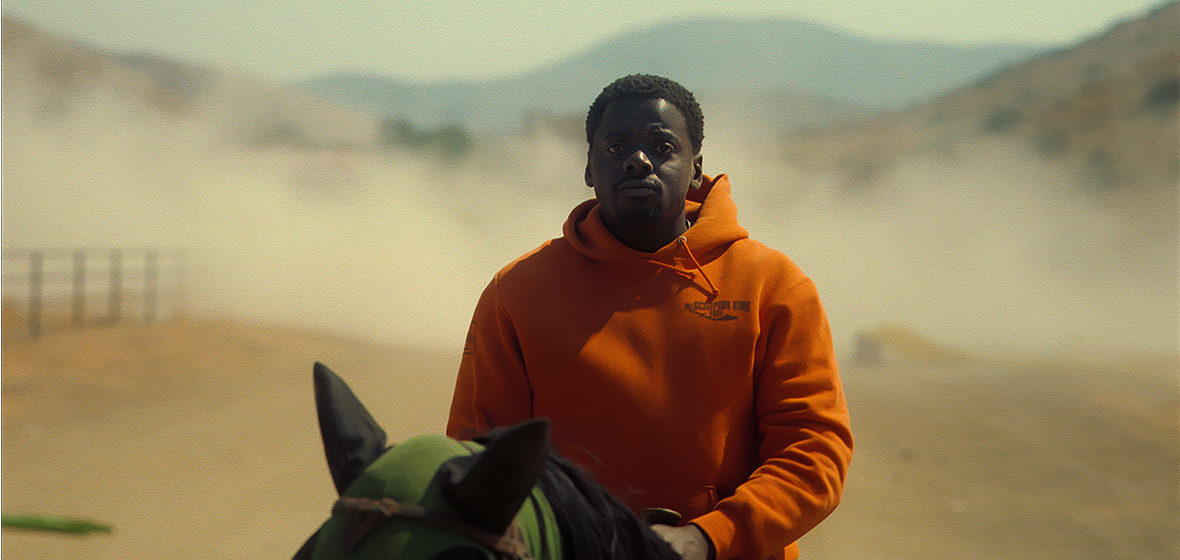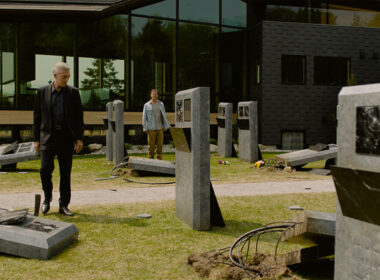Rating: ***
There was a time when Jordan Peele was going to save popular cinema from the clutches of studio franchises and marketing-driven monoliths, created when an algorithm signalled to an untalented producer how to please the three-headed monster – the “audience”.
Peele started with a prolific partnership with Keegan-Michael Key in the tremendous Key & Peele that continued David Chapelle’s job of unpacking Black America’s footprint in pop culture one comedy sketch at a time. But, while Chapelle’s style was juvenile and cathartic, Peele and Key had an almost philosophical edge to their approach.
This made sense when Peele revealed that his directorial debut would be a horror-psychological drama-thriller work about the complexities of systemic racism and its fetishisation in America. The appeal of Key & Peele had always been the message. The vehicle was comedy, a convenient conduit for satire. So, unrestrained by audience expectations, Peele switched genres to the obvious choice.
Get out was a landmark. It came at the right time, swinging back and forth between all the fences. It was layered, and forced white middle-class Americans to face up to their own position on systemic racism. Remember that scene near the end when Daniel Kaluuya’s protagonist is running towards an oncoming car and then stops in his tracks when he realises the car is, in fact, a police vehicle? The film managed to instil, even in the most privileged in the audience, the feeling of panic and uncertainty that African-Americans face in relation to figures of authority.
For his sophomore project, Us, Peele took aim at the anguishes evoked by the social gap. It was, in every sense, a larger film than Get Out, padded with symbolism and complicated narrative turns. It was the type of wild concept that comes to life only when an artist is so sure of his craft that for him it’s a matter of audience be damned.
Nope is not only a new film by a promising director whom both critics and audiences love. It’s also the continuation of the same artist’s conversation with the world. After making us face up to racism and gentrification, Peele wants us to take a new look at entertainment.
The film starts with a cryptic sequence of a blood-soaked chimpanzee alone in a television studio, surrounded by dead bodies. The message is simple: entertainment is exploitative, and simply needs an audience in order to be experienced. And that is an ethos Peele happily capitalises on.
The protagonist is OJ (Daniel Kaluuya), whose name recalls the time the whole country obsessively tuned in live to see a black man running away from the police. This OJ, though, owns a family ranch in California that specialises in breeding horses for use in the entertainment industry. After the death of his father (Keith David), OJ and his rowdy sister Emerald (Keke Palmer) struggle to keep the family business afloat.
Neighbouring their ranch is a cowboy-themed park owned by child star Jupe (Steven Yeun), who has been capitalising on his trauma as the survivor of the previously-mentioned chimpanzee massacre, though dwindling attendance is now forcing him to create a new edge to his show.
When a series of strange events hint at a supernatural or alien threat in the valley, OJ and his sister try to capture footage of it. Like all destructive things, the reason for their filming is purely money, a drive strong enough to make them risk their lives.
The pièce de résistance that highlights the film’s thematic concept is that a threat, like a monster’s head, is deadly only when someone looks at it. The film’s victims are a literal audience: expecting to see the death of an animal, as if witnessing a sacrificial ritual, they end up themselves sucked into a literal and metaphorical feeding machine.
the destructive power of our addiction to social media, mindless entertainment, shock value, and reality shows. As an example, a character in the film is a TMZ reporter wearing a reflective bike helmet, making Peele’s point that exploitative tabloid journalism is merely a distorted reflection of us all.
The problem with Peele’s treatment is that he is criticising the system in tandem with patronising the audience that consumes it, and the cynicism of this undermines the complexity of the message: reality shows are a low form of art, literal roadkill you watch because you can’t look away, and this in turn consumes you (the metaphor writes itself). It would have been interesting if he had heightened the tension between that form of entertainment and art; if so, he could have portrayed the audience of the programs in his film sympathetically, as victims of a grand design they couldn’t control. The idea that people will always turn to the violent, the horrible, the real, is not new, not even modern – it’s human.
Before releasing this film, Peele produced two seasons of the Twilight Zone reboot. It received mixed reviews and failed to capture the magic of Rod Serling’s intelligence, but it was fertile ground for some terrific stories, especially the ones where Peele was more involved. I have a gnawing feeling that at some point Nope was supposed to be an episode of that show that Peele correctly thought would benefit from an epic, Imax-lensed large-scale scope; but sadly there’s still a good chunk in the middle of his latest offering, a good 20 minutes long, with no real story, theme or character development. This brought me to the conclusion that Nope is a gorgeous film to look at (the cinematography is by Hoyte van Hoytema) and has a lot to say, but the message has been distracted by its cleverness.
But Nope is still good. Palmer is a standout, a bona fide star who earns her sidekick-turned-hero badge with honours. And Peele continues to be a breath of fresh air in cinematic entertainment. He has the guts of a young M Night Shyamalan with triple the talent. He’s a John Carpenter in the making. A Katsuhiro Otomo with Spielberg’s visual composure. A misstep for him is still better than many of the other films out there.




